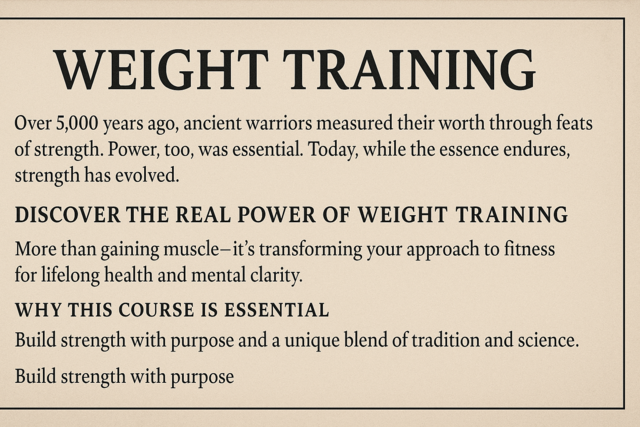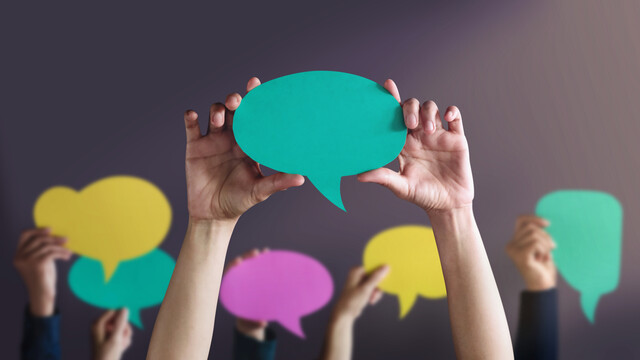The art of small talk and polite conversation is quickly dying. Many people are uncomfortable in situations where they have to make small talk with others or chat with people they have just met. Understanding the etiquette of polite conversation, including what topics are acceptable, what topics to avoid, and how to end uncomfortable exchanges, will enable you to make conversation in any situation.
Depending on the dictionary you consult, you will find small talk defined as "light, informal conversation for social occasions," "idle banter, usually made out of politeness," or simply "casual conversation." Any of these definitions fit, but none of them teaches you the details of how to go about small talk with style. It should be pleasant and unhurried and should put everyone at ease.
Small talk is surprisingly important. It greases the wheels at business meals or meetings and social occasions and can make a long wait in line much less annoying. If you succeed in charming your future mother-in-law with small talk at your first meeting, your life is going to be much easier in the years to come. If you make a new colleague comfortable while waiting for a business meeting to start, you will be sought after in future business dealings.
Appropriate Topics
The key to polite conversation is keeping the topics light, interesting, and non-controversial. You want the discussion to be pleasant; you do not want to start a political debate. You must also be aware of your audience and the setting. While a great story about something amusing that happened on your last business trip might be perfect at a business lunch, it will not really interest a mixed group of friends at a weekend picnic who are not familiar with your business.
Some topics that are generally considered taboo for polite conversation include politics, religion, and any local "hot button" issues that have caused hard feelings and sharply divided camps. General observations about the turnout at voter registration may be fine, but political comments might inadvertently insult another person's political views and can lead to arguments or uncomfortable silences.
Here are some guidelines for choosing topics that will and will not work for polite conversation:
� Asking about someone's family. In most cases, this is a welcome topic. Be sure to listen more than talk at this point; a good conversationalist knows when to listen. Parents love to talk about their children and grandchildren.
� Newspaper stories. If it is an interesting or unusual story, it will be welcome. If it is grim or depressing, avoid it. No one wants to be brought down.
� Sports. Choose this topic according to the audience. If you are with a group of people who share your interest in football, it is a great topic. If half the people know nothing about the game, save this topic for another time. A good conversationalist knows how to choose the right moment.
� Relaying good news about friends. If you are talking to someone who has mutual friends with you, be sure to pass the word of good news.
� Suggesting a good restaurant/movie/television program. Others always appreciate advice on something new that they might enjoy.
� Discussing local events. If your community sponsors local activities, be sure to talk about them in a positive light.
� General topics of interest. Depending on the group you are with, this might be local schools, real estate in your area, or local cultural programs. The key is to keep your comments upbeat. Do not make harsh criticisms of the school board, but comment on how impressive the high school football team's record was this year.
� Human interest stories. If you have heard an inspiring story about a young person who has overcome steep odds, an individual who rescued a neighbor, or any other heartwarming tale, share these with others. Animal stories are always a good bet; people love their pets and enjoy hearing uplifting stories about animals.
When you are on the receiving end of questions, be sure you answer in the same vein: Be upbeat and charming. Polite conversation involves a good balance of talking and listening. No single person should dominate the conversation, so keep your answers to the point. If someone asks you about your family, be sure to give a thorough answer, but do not drone on. You should always refer to your family members by name because the other person may have forgotten their names and you do not want to put them on the spot.
For instance, if someone asks about your kids, you could say, "Our youngest, Emma, started kindergarten this year, Molly started junior high and is in the band, and Joshua will graduate this year. They are all doing great! And how are your kids?"
If you have been ill and people ask about your health, do not give them the details of your recovery! While they are genuinely concerned, they really do not want to hear about the messy details of your treatments and how miserable you were. Simply let them know that you are recovering and appreciate their thoughts and prayers.
Sometimes a polite conversation can turn ugly in seconds. If you are in a conversation and it takes an unexpected turn that is definitely not polite, make every effort to steer it toward another topic immediately.
Some examples of inappropriate situations when you should change the subject include:
� any time an argument has broken out;
� when stories or jokes have become inappropriate or are racially or sexually offensive;
� when part of the group is "talking shop," using technical terms and leaving out others in the group while boring them in the process.
In situations like these, interrupt politely and suggest a new topic. A few ways to do this might be:
� "I know you guys love to talk about work, but the rest of us are completely lost. Can we switch to something us mortals understand, like last night's great game?"
� "I think that's enough about that. Has anybody else heard about Janet's engagement?"
� "Scott, why don't you tell us more about what your company's been doing with the Chamber's new recycling efforts?"
� "Wow, that was interesting, but I know I'd rather talk about the latest movies. Has anyone seen any good movies lately I shouldn't miss?"
You will be a hero to everyone if you rescue them from an uncomfortable situation!
Sometimes you will be the person who will put the proverbial foot in the mouth. Perhaps you will ask about someone's family only to find out the person's child passed away or you will ask about the person's job and hear that he or she was just fired. You should immediately offer your apologies. If you are met with silence, offer an observation such as, "I'm sure this has been rough, but your family and friends have been very supportive." This should give the other person an opening to talk about those who have been helpful.
Do not compare another person's troubles with your own. That will only give the person the feeling that you are belittling their sorrows, and it is rude. If the person seems reticent to talk about the subject, steer the conversation to other aspects of her or his life and allow the person to direct the conversation.
Giving and Receiving Compliments
An unexpected compliment can brighten someone's day. Children notice this when their father tells their mother how pretty she is or their mother compliments their father on the great job he did installing the new bookshelves. Families who compliment each other regularly raise children who are comfortable both giving and receiving compliments.
Unfortunately, some people today are either uncomfortable with compliments and try to deflect them with humor, or they are suspicious of them and fear that the person complimenting them has an ulterior motive. Fortunately, the majority of people still welcome a compliment and are pleased to receive one.
A compliment can get the conversation started on a positive note in almost any situation. You can compliment someone's appearance, intelligence, ability, personality, or talent; it really depends on the situation. If you are on a date, you might want to tell the person you are with how great he or she looks, that you think the person's opinions on the latest energy program are interesting, or that you love the way she or he laughs.
Some situations that call for a compliment include the following:
� invitations to events in which someone provided you with a meal;
� when someone has received any kind of recognition, honor, or award;
� when someone has put in extra effort on a job or project;
� a case when someone has done something brave or unusual to help another;
� any time a major change, such as weight loss, has taken place;
� when someone achieves some milestone, such as a promotion or degree;
� when someone looks particularly nice or is dressed for a special occasion;
� when someone has competed in any type of competition. The person does not need to have won; you can congratulate the competitor on a job well done.
Compliments do not have to be fancy or elaborate. Simple and sincere compliments are best:
"The meal was delicious. I loved the pork tenderloin!"
"I heard about your Rotary Scholarship! I knew you were an outstanding student. You'll do great at college."
"You look great, Jenn! It's like you're a teen again!"
"That color looks great on you."
"You really gave them a run for their money. Great job!"
Receiving Compliments Graciously
For some of us, the reflexive response to a compliment is to protest. We feel like it is vain or presumptuous to accept a compliment, so we argue, saying things like, "Oh, no, I didn't do that great," or "I look awful! My hair is a mess!" This is actually rude because it is insulting the person giving you the compliment; you are insinuating the person does not know what he or she is talking about.
The appropriate response to a compliment is simply a smile and, "Thank you," or "That's so nice of you," or something similar. Do not feel embarrassed when someone compliments you. Take it in stride and savor it.





























